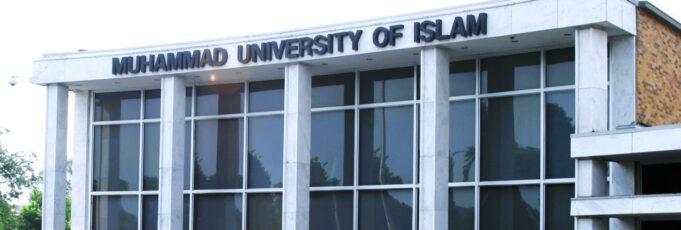Muhammad University of Islam (M.U.I.) in Chicago has instilled excellence in Black children for decades. M.U.I. is the independent school system established in 1934 in Michigan by the Honorable Elijah Muhammad to cultivate and educate Black children who suffered from miseducation and hostility in the public school system.
It was a sacrifice for the early Muslims who took their children out of the public school system for the right to teach them properly. The Honorable Elijah Muhammad and many of his followers were unjustly jailed for “contributing to the delinquency of minors.” The Honorable Minister Louis Farrakhan reestablished M.U.I. nearly 35 years ago on Sept. 6, 1989.
The Final Call spoke to a few M.U.I. alumni who have graduated college and are pursuing bright futures ahead.
Studying the science of the brain
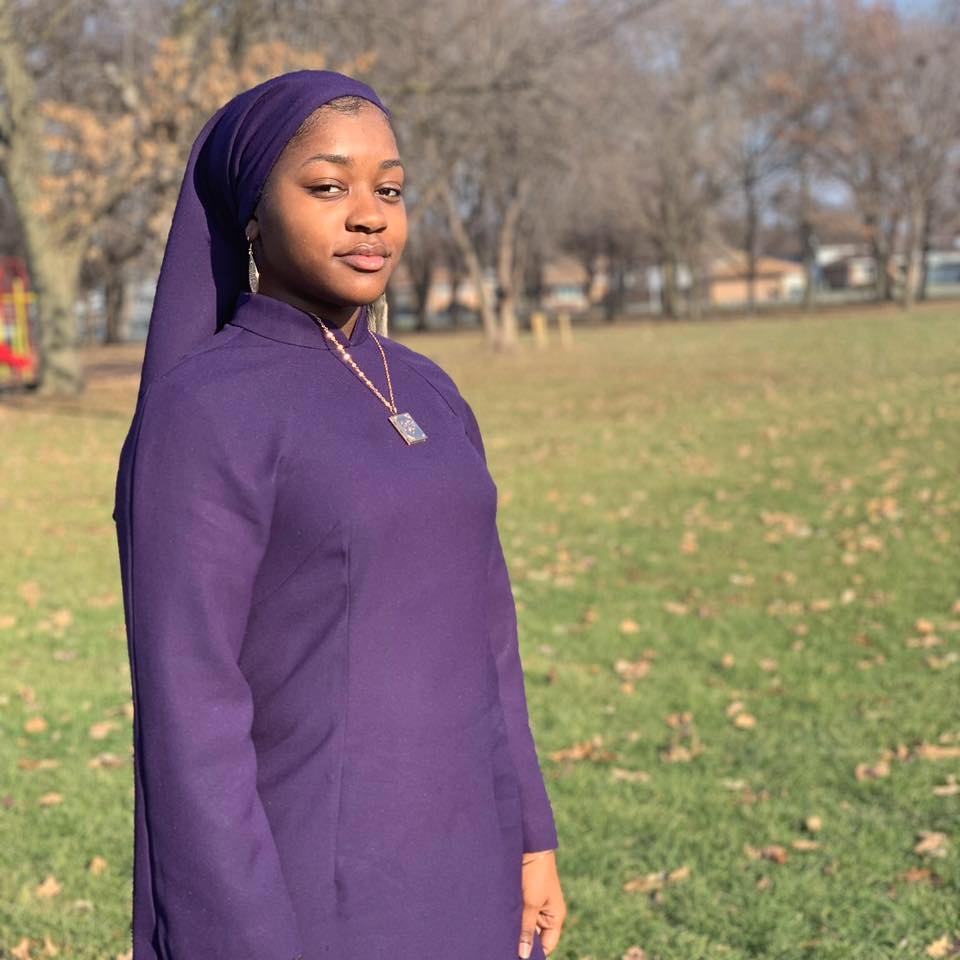
Sister Madinah Muhammad graduated M.U.I. on July 11, 2019, and graduated with her bachelor’s in neuroscience on May 6, 2023, from the University of Illinois Chicago (UIC).
“Coming in as a neuroscience major, my main desire was to get my degree so that I could help get our people out of the painful mental condition they were in.
Having the knowledge of how we got in this state compelled me to want to connect the deeper science of the brain to the Teachings of the Most Honorable Elijah Muhammad and go into our communities with a holistic view of our experience and really bring about significant change,” she said.
As a product of M.U.I., she learned what it meant to walk in her truth and to accept her own and be herself.
“When embarking on the college journey, Muhammad University did a great job at giving us standardized test prep, resumé and interview courses, as well as bringing in many professionals from respective fields to encourage us to seek higher education. Additionally, we went on college tours and to many engaging field trips that allowed us to expand our personal interests,” Sister Madinah said.
One of her main challenges in college was burnout and learning to help herself physically and mentally.
“College students need to live sustainable and healthy lives to preserve their hearts and minds for the future. There will be difficult days, but if every day is just as hard, if not harder than the rest, there has to be some kind of self-evaluation to make sure you’re not harming yourself in the process of trying to succeed,” she said. “And it’s okay to rest. You will drive yourself crazy trying to rush Allah’s (God’s) plans for you.”
Sister Madinah is seeking her master’s degree in public health with a concentration on mental health.
“As I continue on my career journey, I want to study the elements of childhood rearing, particularly in the Black community, that contribute to brain development and decision-making as the young get older.
This research will provide insight and work to address some of the main problems we face in our communities such as social violence, domestic violence, self-directed violence, poverty, low self-esteem, bullying/peer pressure, and some of the less systemic issues many Black youth encounter,” she said.
“Coupling these studies with other interests of mine like writing, mentorship and service as a whole, I want to provide a platform to promote conscious parenting, intentional living and youth encouragement through positive self-expression,” she added.
Building cities and people
Brother Musa Muhammad, 24, attended M.U.I. from 3rd grade to 6th grade. He credits the institution for enabling him to graduate high school at 15. He received his bachelor’s in architectural studies at the University of Illinois Urbana-Champaign in 2019. Two years later, he received his master’s in architecture and civil and environmental engineering focusing on construction management.
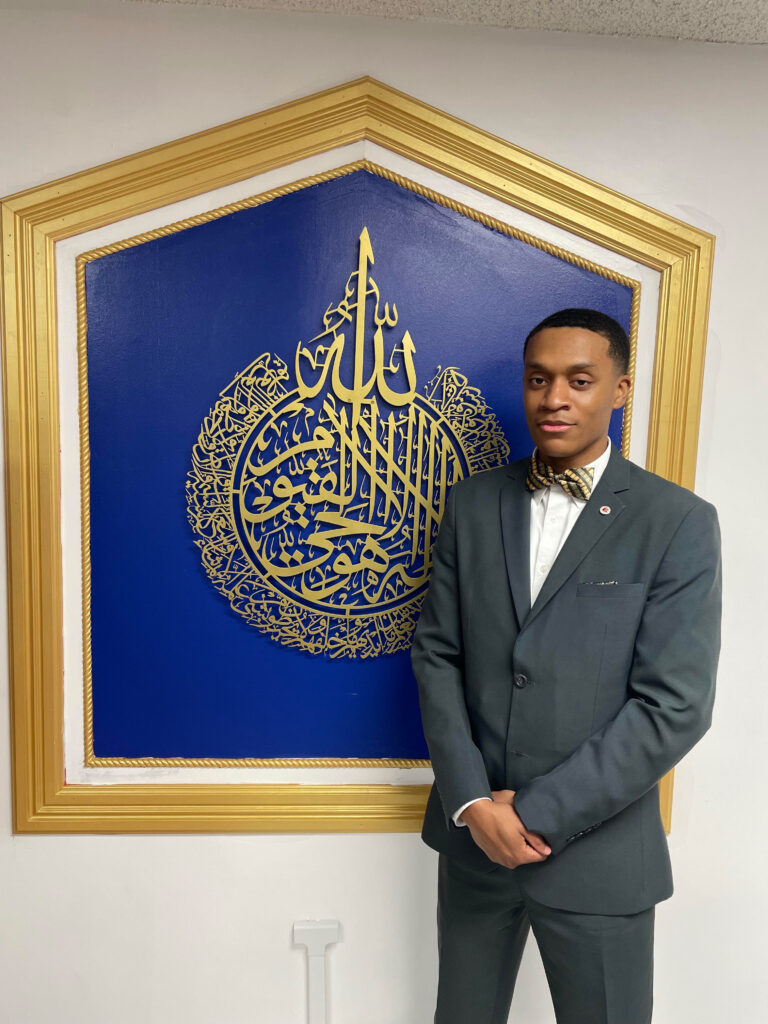
“When I was three or four years old, my parents recognized that I enjoyed drawing and I enjoyed math and science. Due to that, coupled with influence from my father’s experience in construction, they began telling me at that age that I would be an architect, so I grew up believing I would be an architect and never doubted it,” he said. “By the grace of Allah, I became a licensed architect in Illinois earlier this year.”
He described the culture of M.U.I. and how the teachers were like aunts and uncles and his classmates were like his brothers.
“Having an environment like that for a child is invaluable because it allowed us to grow up knowing that people love us, care about us and are actively trying to help us become great,” he said.
M.U.I. instilled in him the importance of discipline and a deep love for Black people. While attending the University of Illinois Urbana-Champaign, he was one of few Black people in his classes.
“But knowing that I’m doing what I’m doing to serve Allah, serve my people and to be an inspiration and a resource to those coming after me always grounded me,” Bro. Musa explained.
Career-wise, he desires to assist in building beautiful spaces, buildings, towns and cities for Black people. He also loves teaching and intends to help develop a curriculum for and teach at “Muhammad University School of Architecture,” as it becomes established.
He quoted from a message by the Honorable Minister Louis Farrakhan, the National Representative of the Most Honorable Elijah Muhammad, titled, “Self-Improvement: The Basis For Community Development,” found in the Minister’s Self-Improvement Study Guides.
“… to those who spend those hundreds of millions and billions of dollars building structures: unless we build people; unless the human potential of people is developed; then man, in his underdeveloped state, will ultimately destroy the cities that he has built because of revolution and war,” Minister Farrakhan says.
“So, the Scripture is right in teaching, ‘What does it profit a man if he gains the whole world and loses his soul?’ What would it profit us to build magnificent structures, beautiful buildings, magnificent bridges, built with magnificent technology and the soul of those human beings are wretched and deprived and underdeveloped and rotting from within?
How does one lose one’s soul? What is so important about the soul, or the essence of our being, that if we lose it, we lose everything?” the Minister questions.
Brother Musa explained that he understands that his work as an architect is incomplete without the mental, moral and spiritual development of Black people. “I thank Allah that He has thus far permitted me to be a student in the ministry class here in Chicago, and I know that my greater work is in the Ministry of Spiritual Development.”
Designing architecture
Sister Nyah Tsai Muhammad was three years old when she first started attending M.U.I. She attended from kindergarten to 5th grade. Like Musa Muhammad, she also credits M.U.I. with being able to graduate high school at 16 years old.
At 20, she graduated from the School of Architecture at UIC on May 6, 2023, with a bachelor’s in architecture.
Her mother is a teacher at M.U.I. and a real estate agent on the side. Growing up, she tagged along with her mother and saw different properties around Chicago. In addition, she was always interested in playing with Legos and constructing inventions.
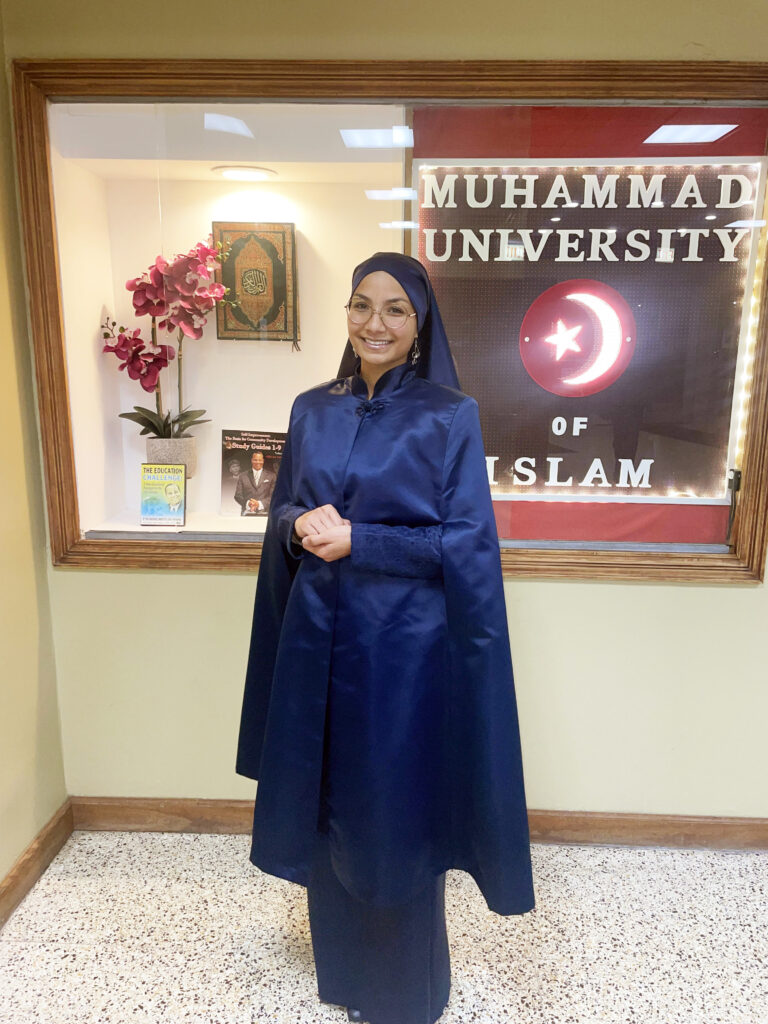
“This allowed me to see the difference between Black communities and other communities, whether it be architecture, maintenance, cleanliness, access to fresh food, etc., which was something I never forgot,” she said.
“I realized how much Black communities, particularly in Chicago, would benefit from having Black architects who have their own people’s interests in mind. The Most Honorable Elijah Muhammad teaches ‘do for self,’ and if we want better in our communities, then we must create that better for ourselves. From there, Allah confirmed that architecture was the route for me,” Sister Nyah added.
M.U.I. staff supported her throughout her college journey, continuously providing insight, guidance and advice. She also found support through the Black organizations on campus and architecture organizations that catered to non-White students, as less than 15 of the almost 200 students in her architecture class were Black.
“The National Organization of Minority Architects was the only organization that allowed me to be surrounded by people who looked like me, knew the struggle of being Black and people who specifically cared about Black students in architecture,” she said.
Sister Nyah reactivated her college’s chapter and served as president during her senior year. As a result, she now works at Beehyyve, a Black-owned architecture, design and urban planning collective in Chicago.
“I am still deciding what my end goal career is. I pray that I continue to allow myself to be guided by Allah. I do intend to dibble and dabble in areas besides architecture, including business, agriculture and fashion. I am currently an architectural designer and I am considering pursuing licensure,” she said.
Right now, she is just allowing Allah (God) to work through her.
“I would be honored to contribute to the upliftment of Black people in regards to redesigning our communities and neighborhoods. Over the years, there has been an increase of Black businesses, all praise be to Allah! We have restaurants, barbershops, schools, boutiques and so much more. Insha’Allah I’ll be able to assist the Black entrepreneurs and developers with designing their dream spaces and bringing it into reality,” she said.
Connecting globally
Brother Khalifah Muhammad, 22, skipped kindergarten and started attending M.U.I. in Los Angeles in first grade. When his family moved to Chicago, he attended M.U.I. in Chicago from 4th grade through high school. He worked to graduate high school early, at the age of 15 in the 11th grade.
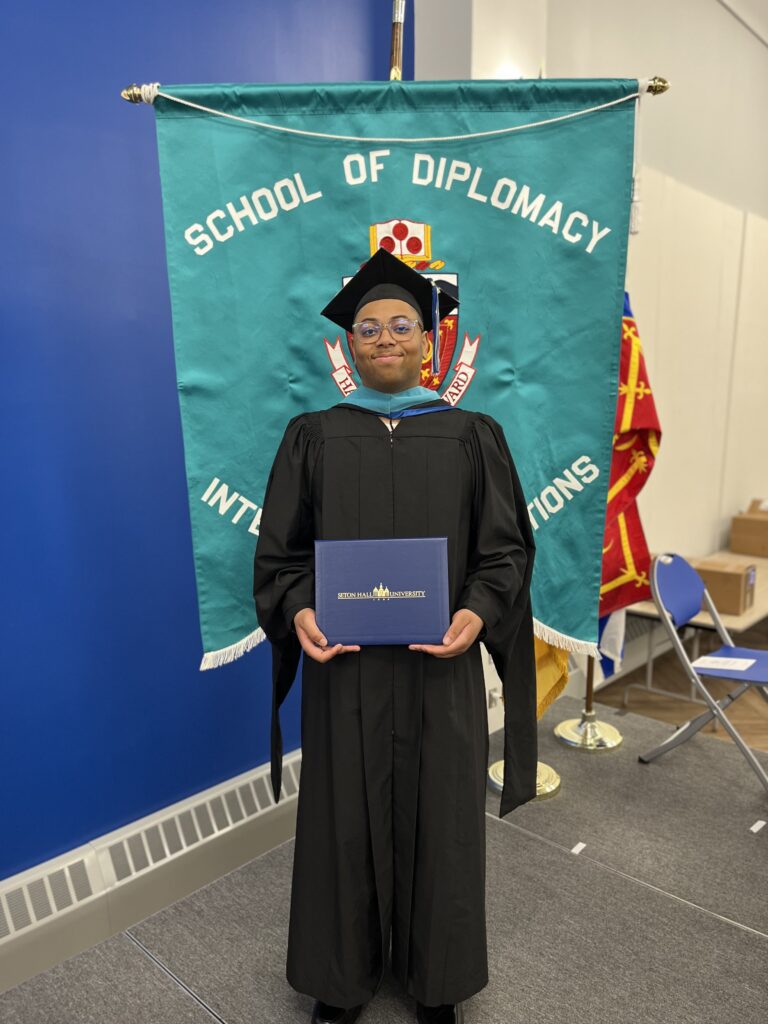
“I’m competitive, and I get impatient when it comes to academics,” he said to The Final Call. “I didn’t waste time doing a bunch of busy work. I was in a competition with myself and my sister because she also graduated at 15 and is in her doctoral program now.”
Brother Khalifah spent his freshman year of college at UIC and transferred to Grambling State University, a historically Black university in Grambling, Louisiana when his family moved. At 19, he graduated with a degree in history and a minor in mass communications. He just graduated from Seton Hall University in South Orange, New Jersey, with his master’s in diplomacy and international relations.
Initially, Brother Khalifah was interested in engineering, but a model UN experience changed his perspective. “When I went and did the model UN program, I realized that I thoroughly enjoyed and kind of had a knack for discussing international relations. So, after doing model UN those two years, I knew that the area I wanted to focus on was largely political science and diplomacy and international relations,” he said.
Brother Khalifah shared that he wouldn’t be where he is today without M.U. I.’s rigorous curriculum and the school’s staff that taught different approaches. He also appreciated and complimented the school for instilling the Teachings of the Honorable Elijah Muhammad.
“Having the Teachings as a basis always comes in clutch, especially during the master’s program where I’m doing international relations and can rely on the lectures of the Minister that they showed us at M.U.I. or studying ‘Message to the Blackman’ in-depth like we did during school,” he said.
Brother Khalifah Muhammad plans to take the summer off while he works with a lead specialist on cyber security. In the future, he plans to go more into policy and research analysis focused on Africa and Southeast Asia and he ultimately hopes to serve as an ambassador for the Nation of Islam and making international connections.
“We can’t think domestically. We’re told that the universe is ours, that Islam is universal, so we definitely have to be able to take what we have and expand it to meet the different people,” he said.
Cultivating young Black excellence
Brother Talib ul Hikmah Karriem has been in education for 26 years. He has dedicated the last 16 years to Muhammad University of Islam (M.U.I.) in Chicago and has served as Student Interim Director of the school for over 12 years.
Today, there are 13 locations around the country and four affiliate schools. The school boasts a 100 percent graduation rate since 2009 and a 100 percent college, university or trade school acceptance rate.
“Our work becomes easy if we put before the students what Master Fard Muhammad revealed and taught the Honorable Elijah Muhammad. Our Teachings naturally remove the poison of White supremacy and Black inferiority,” Brother Talib said.
“To be in a school where God is the head, He is respected, honored, and His teachings are placed at the forefront of the students’ minds, the end result of the knowledge coupled with the teaching of good character and good morals is that Black excellence rises from their nature and becomes a part of their lives.
Black excellence is cultivated by feeding the students the teachings of God and placing them in an environment where God and His unique expression can be mined out of each child,” he continued.
He described that the job of educators is to help students see and accept their potential for excellence in any area they set their minds to.
“It is important for Black youth to rise into their greatness and excellence because God has willed it, and it is now our time to return to our rightful position in the world and universe,” he said.
“The rise of Black youth represents a total and complete change from the old to something entirely new. This is why the aim has always been, from biblical times to the present, for the enemy to destroy the young, the youth, because they represent the hope for a better future.
They are changemakers and strong revolutionaries that Satan wishes to keep dull, dumb, distracted, and illiterate so that he can use them as tools and slaves,” he added. “God is present to take the youth and raise them to a level of excellence never witnessed before.” For more information about Muhammad University of Islam, visit www.muichicago.org or call 773-643-0700.
Final Call staff contributed to this report.












